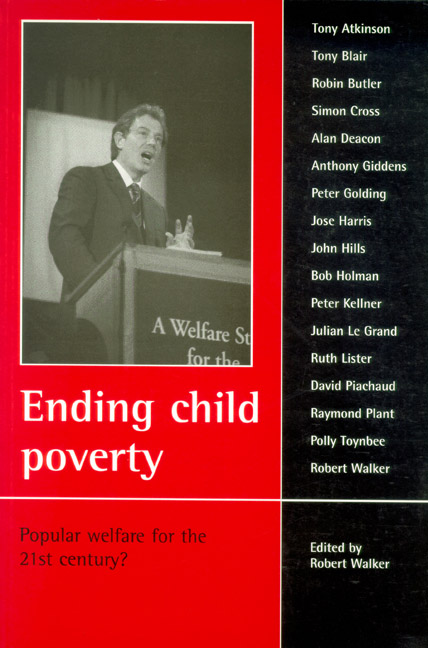12 - A modern party of social justice: achievements and missed opportunities
Published online by Cambridge University Press: 05 July 2022
Summary
This note assesses the government’s record in promoting social justice under the four, sometimes overlapping, headings of:
• tackling social exclusion and poverty;
• supporting and investing in families;
• ‘a new contract for welfare’;
• strengthening and extending citizenship.
Each section is divided into achievements and missed opportunities, although in some cases the same policy represents both an achievement and a missed opportunity.
Tackling social exclusion and poverty
Achievements
• The establishment of the Social Exclusion Unit at ‘the heart of government’ in the first few months in power. The Unit’s reports display a seriousness of purpose in tackling the problems within its remit. The strategy for neighbourhood renewal is particularly impressive and has generally been well received.
• The proposed annual poverty audit. This should act as an important marker of the government’s commitment to reduce poverty and provide a focus for public debate on anti-poverty strategies.
• Recognition of the need to address the link between poverty and health inequalities.
Missed opportunities
• The opportunity now exists to build on these initiatives to promote a high profile, comprehensive anti-poverty strategy which is more than the sum of its parts, in line with the Declaration of the 1995 Copenhagen Summit on Social Development. In particular such a strategy needs to be:
◗ Participatory: The speed with which the Social Exclusion Unit has had to work has made it difficult for it to engage in genuine consultation with those affected by the problems it is tackling. As acknowledged in the neighbourhood renewal report, policies to tackle social exclusion are unlikely to work if the communities affected are not involved in their development. There is an opportunity now for the Social Exclusion Unit to translate this principle to the national level and, in collaboration with voluntary agencies such as the UK Coalition against Poverty, to design a participatory infrastructure. This would provide channels through which those excluded from the formal political process could participate in debates about policies to tackle social exclusion and poverty, as was the case in the development of the Irish National Anti-Poverty Strategy. The process of engagement which this would entail would strengthen the fabric of citizenship.
- Type
- Chapter
- Information
- Ending Child PovertyPopular Welfare for the 21st Century?, pp. 93 - 100Publisher: Bristol University PressPrint publication year: 1999

